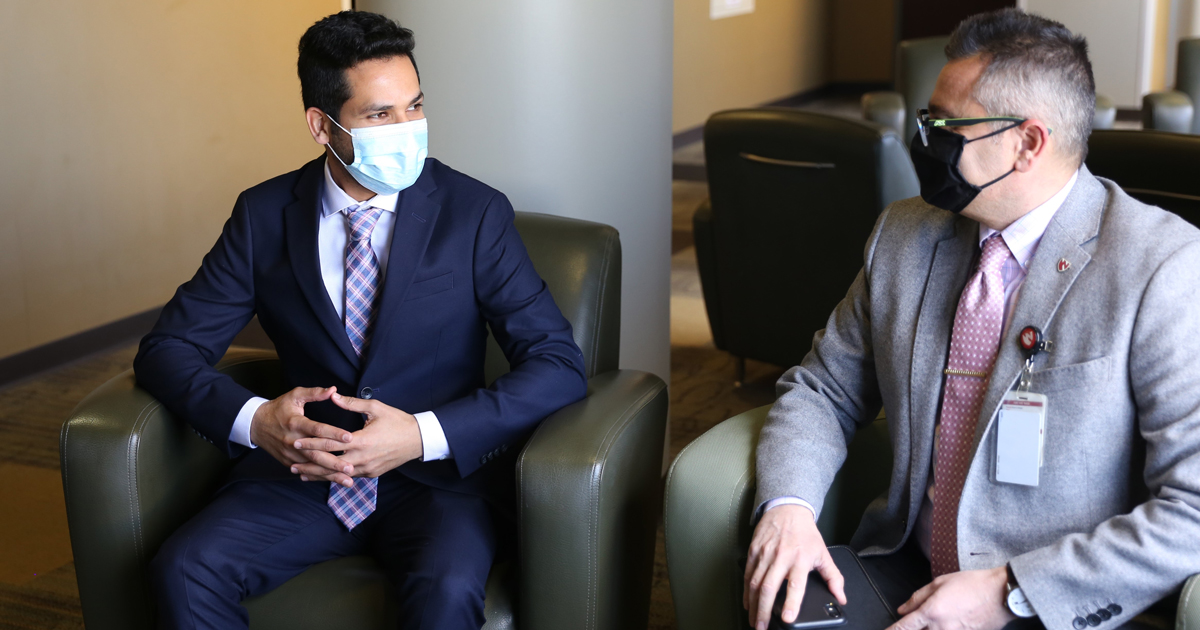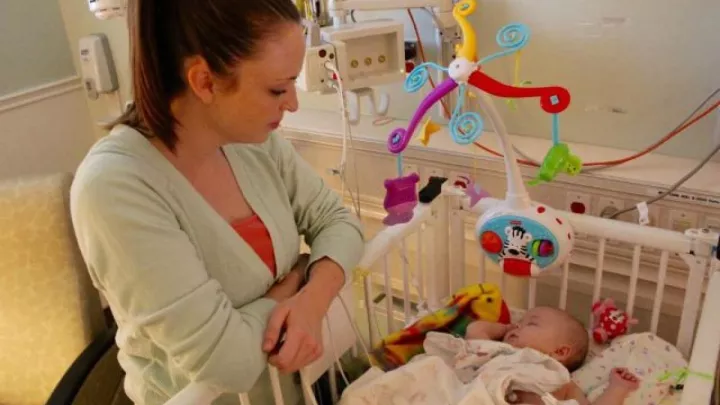From Saudi Arabia to Omaha: How Nebraska Medicine cares for international patients

In her homeland of Saudi Arabia, Mona Al Marzouq was running out of options. She had spent nearly two years inside hospital walls. Complications from several rounds of treatments for rectal cancer had left her unable to eat. She was always in pain and her health was declining fast.
"Her case was difficult and complicated," her son, Ibrahim, says. "Everyone thought she would die." Ibrahim and daughter Zainah had been her caretakers for years. After her homeland's hospitals said there was nothing more they could do, they had to look elsewhere.
Transplantation surgeon David F. Mercer, MD, knew he could help. "Our Intestinal Rehabilitation Program has been doing these kinds of complicated surgeries for many years, and we have significant experience working with international patients" says Dr. Mercer. He agreed to take on Mona's case.
It was decided. Mona, Ibrahim and Zainah were coming to Nebraska Medicine. But they'd never been to the United States before. Who would handle the complicated logistics of getting them here and settled?
Mohammed Al-Kadhim is part of the Nebraska Medicine International Healthcare Services team. Al-Kadhim's team does so much more than translation. They handled all the logistics of bringing the Al Marzouq family to Omaha, including helping with travel arrangements, providing cell phones and updating their local doctors and even the Saudi consulate.
"We provide the best service for the most complicated medical challenges," says Al-Kadhim. "We're a welcoming city and a welcoming hospital to people from all over the world."
Beyond that, Al-Kadhim helped with the cultural adjustment as well. Al-Kadhim found the family an apartment in the Blackstone District, introduced them to the local Saudi community and showed them which grocery stores would have the things they're used to cooking with. More vegetables, fewer burgers. And along the way, he's attended all their appointments and keeps in regular contact for any questions they might have.
"We've become like family," says Al-Kadhim.
Hoping for healing
Once the family was settled, it was time for Dr. Mercer to see how he could help. On the day of her surgery, Mona was cheerful, even joyful. "I had no concerns because I trusted Dr. Mercer completely. I knew I'd be good after this," she says.
"The surgery was very complex on the inside. There were infections, leaks and damage from the many previous operations," says Dr. Mercer. "Fortunately, I had that ‘aha' moment and saw surgically where the problem was. I could see why others weren't able to reach it previously."
The surgery went well with no complications – a first for Mona. And then, she could finally start healing. Her intestines began working again. After the first few days, she could drink liquids again. Then mashed potatoes. Then soup. Then finally, Mona could eat the foods she hadn't tasted in years. "My sister and I prepared meals for her daily. The hospital food was good, but my mother just wasn't used to it," explains Ibrahim.
Mona went from lying in bed, in pain, without eating anything. Now, she can get up, walk, get some exercise and eat food unassisted for the first time in years.
"Dr. Mercer changed my life," says Mona. "He did a miracle."
And the family can't forget how Al-Kadhim also helped them every step of the way. "Dr. Mercer did a great job with my mom, and Mr. Mohammed did a great job with us," says Ibrahim.
The family traveled from the opposite end of the earth. And now, they've finally got the care they needed – and made a new friend along the way.





